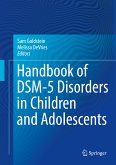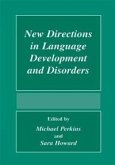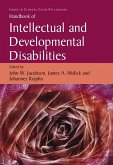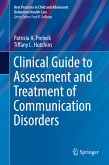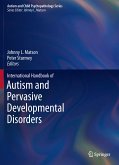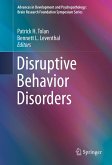Dieser Download kann aus rechtlichen Gründen nur mit Rechnungsadresse in A, B, BG, CY, CZ, D, DK, EW, E, FIN, F, GR, HR, H, IRL, I, LT, L, LR, M, NL, PL, P, R, S, SLO, SK ausgeliefert werden.
(Child and Family Behavior Therapy, 22:3 (2000)
"This book contains the most recent data available about disruptive behavior disorder in children and adolescents and focuses especially on three disorders: attention-deficit /hyperactive disorder, oppositional defiant disorder, and conduct disorder. Because of the wealth of material known and written about these disorders, the book becomes a historical and scientific study. It is easy to read and its length and depth make it most useful as a reference book."
(Journal of Development and Behavioral Pediatrics, 2000 21(2):156
"Professionals and students in all mental health fields will appreciate the extensive coverage of the Handbook of Disruptive Behavior Disorder. 51 contributing experts and over 2600 references attest to the editors commitment to providing comprehensive, up-to-date information in this important area of children's mental health. The editors have compiled knowledge of ADHD, ODD and CD from the full range of diagnostic and treatment approaches and condense it into and invaluable resource for clinicians, researchers, teachers and students alike.
Quay and Hogan's Handbook of Disruptive Behavior Disorder is a powerful reference source for any mental health professional. With extensive, detailed coverage of each disorder by both theorists and researchers, the language of the text remains high readable for a broad audience. The ease of maneuverability throughout the book, all-star cast of contributing experts, and in-depth discussion of any and all related topics to the DBDs make this handbook indispensable."
(Journal of Clinical Child Psychology, 30: 438:439 (2001)
"Including one of the late Dennis Cantwell's last papers, this exhaustive collection of studies is both thoughtful and refreshingly pragmatic. One actually senses, after putting down this book, that there is hope out there because we now have a clearer understanding of problem long viewed as puzzling and frustrating."
(American Journal of Psychiatry, 158:3 512-513 (2001)



